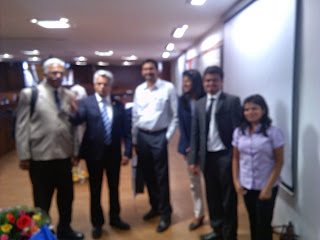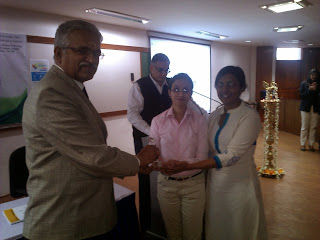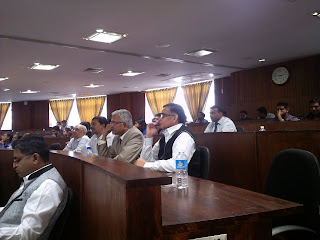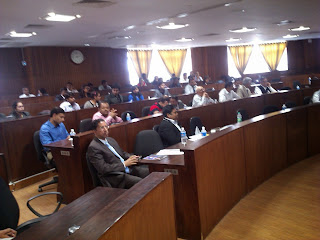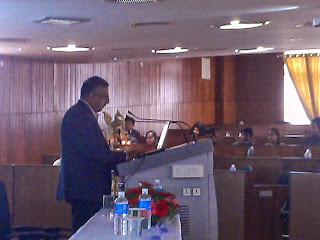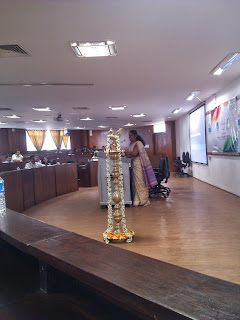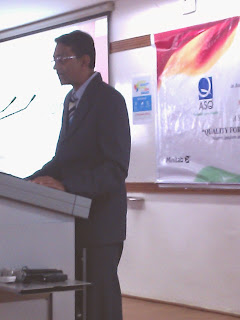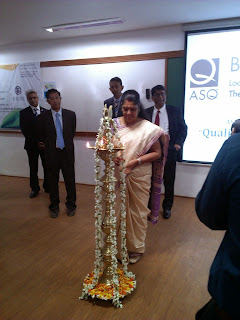Nobel Lecture
Video of speech : https://www.youtube.com/watch?v=NkDpJyGJVpg
Nobel Lecture by Malala Yousafzai, Oslo, 10 December 2014. Courtesy www.nobelprize.org
Bismillah hir rahman ir rahim. In the name of God, the most merciful, the most beneficent
Your Majesties, distinguished members of the Norweigan Nobel Committee, dear sisters and brothers, today is a day of great happiness for me. I am humbled that the Nobel Committee has selected me for this precious award.
Thank you to everyone for your continued support and love. I am grateful for the letters and cards that I still receive from all around the world. Reading your kind and encouraging words strengthens and inspires me.
I would like to thank my parents for their unconditional love. Thank you to my father for not clipping my wings and for letting me fly. Thank you to my mother for inspiring me to be patient and to always speak the truth- which we strongly believe is the real message of Islam.
I am very proud to be the first Pashtun, the first Pakistani, and the first young person to receive this award. I am pretty certain that I am also the first recipient of the Nobel Peace Prize who still fights with her younger brothers. I want there to be peace everywhere, but my brothers and I are still working on that.
I am also honoured to receive this award together with Kailash Satyarti, who has been a champion of children's rights for a long time. Twice as long, in fact, than I have been alive. I am also glad that we can stand together and show the world that an Indian and a Pakistani can be united in peace and together work for children's rights.
Dear brothers and sisters, I was named after the inspirational Pashtun Joan of Arc, Malalai of Maiwand. The word Malala means "grief stricken", "sad", but in order to lend some happiness to it, my grandfather would always call me Malala – The happiest girl in this world and today I am very happy that we are standing together for an important cause.
This award is not just for me. It is for those forgotten children who want education. It is for those frightened children who want peace. It is for those voiceless children who want change.
I am here to stand up for their rights, raise their voice ... it is not time to pity them. It is time to take action so it becomes the last time that we see a child deprived of education.
I have found that people describe me in many different ways.
Some people call me the girl who was shot by the Taliban
And some, the girl who fought for her rights
Some people, call me a "Nobel Laureate" now
As far as I know, I am just a committed and stubborn person who wants to see every child getting quality education, who wants equal rights for women and who wants peace in every corner of the world.
Education is one of the blessings of life—and one of its necessities. That has been my experience during the 17 years life. In my home in Swat Valley, in the north of Pakistan, I always loved school and learning new things. I remember when my friends and I would decorate our hands with henna for special occasions. Instead of drawing flowers and patterns we would paint our hands with mathematical formulas and equations.
We had a thirst for education because our future was right there in that classroom. We would sit and read and learn together. We loved to wear neat and tidy school uniforms and we would sit there with big dreams in our eyes. We wanted to make our parents proud and prove that we could excel in our studies and achieve things, which some people think only boys can.
Things did not remain the same. When I was ten, Swat, which was a place of beauty and tourism, suddenly changed into a place of terrorism. More than 400 schools were destroyed. Girls were stopped from going to school. Women were flogged. Innocent people were killed. We all suffered. And our beautiful dreams turned into nightmares.
Education went from being a right to being a crime.
But when my world suddenly changed, my priorities changed too.
I had two options, one was to remain silent and wait to be killed. And the second was to speak up and then be killed. I chose the second one. I decided to speak up.
The terrorists tried to stop us and attacked me and my friends on 9th October 2012, but their bullets could not win.
We survived. And since that day, our voices have only grown louder.
I tell my story, not because it is unique, but because it is not.
It is the story of many girls.
Today, I tell their stories too. I have brought with me to Oslo, some of my sisters, who share this story, friends from Pakistan, Nigeria and Syria. My brave sisters Shazia and Kainat Riaz who were also shot that day in Swat with me. They went through a tragic trauma too. Also my sister Kainat Somro from Pakistan who suffered extreme violence and abuse, even her brother was killed, but she did not succumb.
And there are girls with me, who I have met during my Malala Fund campaign, who are now like my sisters, my courageous 16 year old sister Mezon from Syria, who now lives in Jordan in a refugee camp and goes from tent to tent helping girls and boys to learn. And my sister Amina, from the North of Nigeria, where Boko Haram threatens and kidnaps girls, simply for wanting to go to school.
Though I appear as one girl, one person, who is 5 foot 2 inches tall, if you include my high heels. I am not a lone voice, I am many.
I am Shazia.
I am Kainat Riaz.
I am Kainat Somro.
I am Mezon.
I am Amina. I am those 66 million girls who are out of school.
People like to ask me why education is important especially for girls. My answer is always the same.
What I have learnt from the first two chapters of the Holy Quran, is the word Iqra, which means "read", and the word, nun wal-qalam which means "by the pen"?
And therefore as I said last year at the United Nations, "One child, one teacher, one pen and one book can change the world."
Today, in half of the world, we see rapid progress, modernisation and development. However, there are countries where millions still suffer from the very old problems of hunger, poverty, injustice and conflicts.
Indeed, we are reminded in 2014 that a century has passed since the beginning of the First World War, but we still have not learnt all of the lessons that arose from the loss of those millions of lives a hundred years ago.
There are still conflicts in which hundreds of thousands of innocent people have lost their lives. Many families have become refugees in Syria, Gaza and Iraq. There are still girls who have no freedom to go to school in the north of Nigeria. In Pakistan and Afghanistan we see innocent people being killed in suicide attacks and bomb blasts.
Many children in Africa do not have access to school because of poverty.
Many children in India and Pakistan are deprived of their right to education because of social taboos, or they have been forced into child labour and girls into child marriages.
One of my very good school friends, the same age as me, had always been a bold and confident girl and dreamed of becoming a doctor. But her dream remained a dream. At age of 12, she was forced to get married and then soon had a son at an age when she herself was a child – only 14. I know that my friend would have been a very good doctor.
But she couldn't ... because she was a girl.
Her story is why I dedicate the Nobel Prize money to the Malala Fund, to help give girls everywhere a quality education and call on leaders to help girls like me, Mezun and Amina. The first place this funding will go is where my heart is, to build schools in Pakistan—especially in my home of Swat and Shangla.
In my own village, there is still no secondary school for girls. I want to build one, so my friends can get an education—and the opportunity it brings to fulfil their dreams.
That is where I will begin, but it is not where I will stop. I will continue this fight until I see every child in school. I feel much stronger after the attack that I endured, because I know, no one can stop me, or stop us, because now we are millions, standing up together.
Dear brothers and sisters, great people,who brought change, like Martin Luther King and Nelson Mandela, Mother Teresa and Aung San Suu Kyi, they once stood here on this stage. I hope the steps that Kailash Satyarti and I have taken so far and will take on this journey will also bring change – lasting change.
My great hope is that this will be the last time we must fight for the education of our children. We want everyone to unite to support us in our campaign so that we can solve this once and for all.
Like I said, we have already taken many steps in the right direction. Now is the time to take a leap.
It is not time to tell the leaders to realise how important education is - they already know it - their own children are in good schools. Now it is time to call them to take action.
We ask the world leaders to unite and make education their top priority.
Fifteen years ago, the world leaders decided on a set of global goals, the Millennium Development Goals. In the years that have followed, we have seen some progress. The number of children out of school has been halved. However, the world focused only on expanding primary education, and progress did not reach everyone.
Next year, in 2015, representatives from around the world will meet at the United Nations to decide on the next set of goals, the Sustainable Development Goals. This will set the world's ambition for generations to come. Leaders must seize this opportunity to guarantee a free, quality primary and secondary education for every child.
Some will say this is impractical, or too expensive, or too hard. Or even impossible. But it is time the world thinks bigger.
Dear brothers and sisters, the so-called world of adults may understand it, but we children don't. Why is it that countries which we call "strong" are so powerful in creating wars but so weak in bringing peace? Why is it that giving guns is so easy but giving books is so hard? Why is it that making tanks is so easy, but building schools is so difficult?
As we are living in the modern age, the 21st century and we all believe that nothing is impossible. We can reach the moon and maybe soon will land on Mars. Then, in this, the 21st century, we must be determined that our dream of quality education for all will also come true.
So let us bring equality, justice and peace for all. Not just the politicians and the world leaders, we all need to contribute. Me. You. It is our duty.
So we must work ... and not wait.
I call upon my fellow children to stand up around the world.
Dear sisters and brothers, let us become the first generation to decide to be the last.
The empty classrooms, the lost childhoods, wasted potential—let these things end with us.
Let this be the last time that a boy or a girl spends their childhood in a factory.
Let this be the last time that a girl gets forced into early child marriage.
Let this be the last time that an innocent child loses their life in war.
Let this be the last time that a classroom remains empty.
Let this be the last time that a girl is told education is a crime and not a right.
Let this be the last time that a child remains out of school.
Let us begin this ending.
Let this end with us.
And let us build a better future right here, right now.
Thank you.







